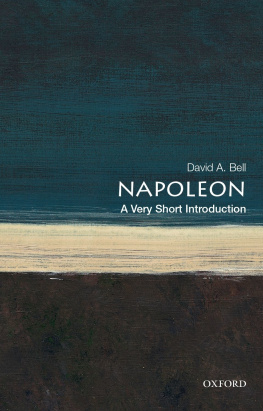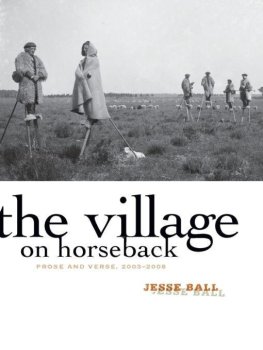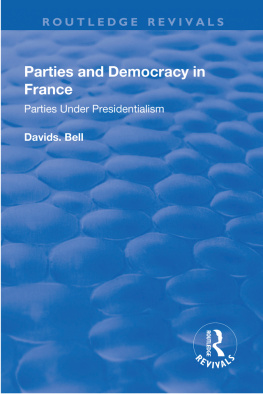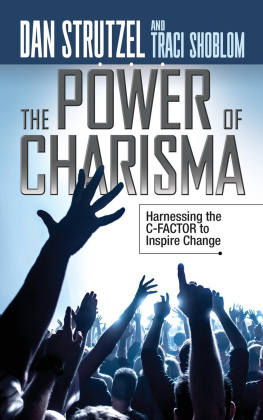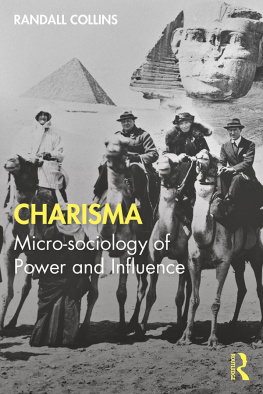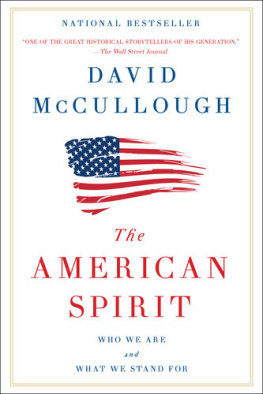David A. Bell - Men on Horseback: The Power of Charisma in the Age of Revolution
Here you can read online David A. Bell - Men on Horseback: The Power of Charisma in the Age of Revolution full text of the book (entire story) in english for free. Download pdf and epub, get meaning, cover and reviews about this ebook. year: 2020, publisher: Farrar, Straus and Giroux, genre: History. Description of the work, (preface) as well as reviews are available. Best literature library LitArk.com created for fans of good reading and offers a wide selection of genres:
Romance novel
Science fiction
Adventure
Detective
Science
History
Home and family
Prose
Art
Politics
Computer
Non-fiction
Religion
Business
Children
Humor
Choose a favorite category and find really read worthwhile books. Enjoy immersion in the world of imagination, feel the emotions of the characters or learn something new for yourself, make an fascinating discovery.

- Book:Men on Horseback: The Power of Charisma in the Age of Revolution
- Author:
- Publisher:Farrar, Straus and Giroux
- Genre:
- Year:2020
- Rating:3 / 5
- Favourites:Add to favourites
- Your mark:
- 60
- 1
- 2
- 3
- 4
- 5
Men on Horseback: The Power of Charisma in the Age of Revolution: summary, description and annotation
We offer to read an annotation, description, summary or preface (depends on what the author of the book "Men on Horseback: The Power of Charisma in the Age of Revolution" wrote himself). If you haven't found the necessary information about the book — write in the comments, we will try to find it.
Men on Horseback: The Power of Charisma in the Age of Revolution — read online for free the complete book (whole text) full work
Below is the text of the book, divided by pages. System saving the place of the last page read, allows you to conveniently read the book "Men on Horseback: The Power of Charisma in the Age of Revolution" online for free, without having to search again every time where you left off. Put a bookmark, and you can go to the page where you finished reading at any time.
Font size:
Interval:
Bookmark:
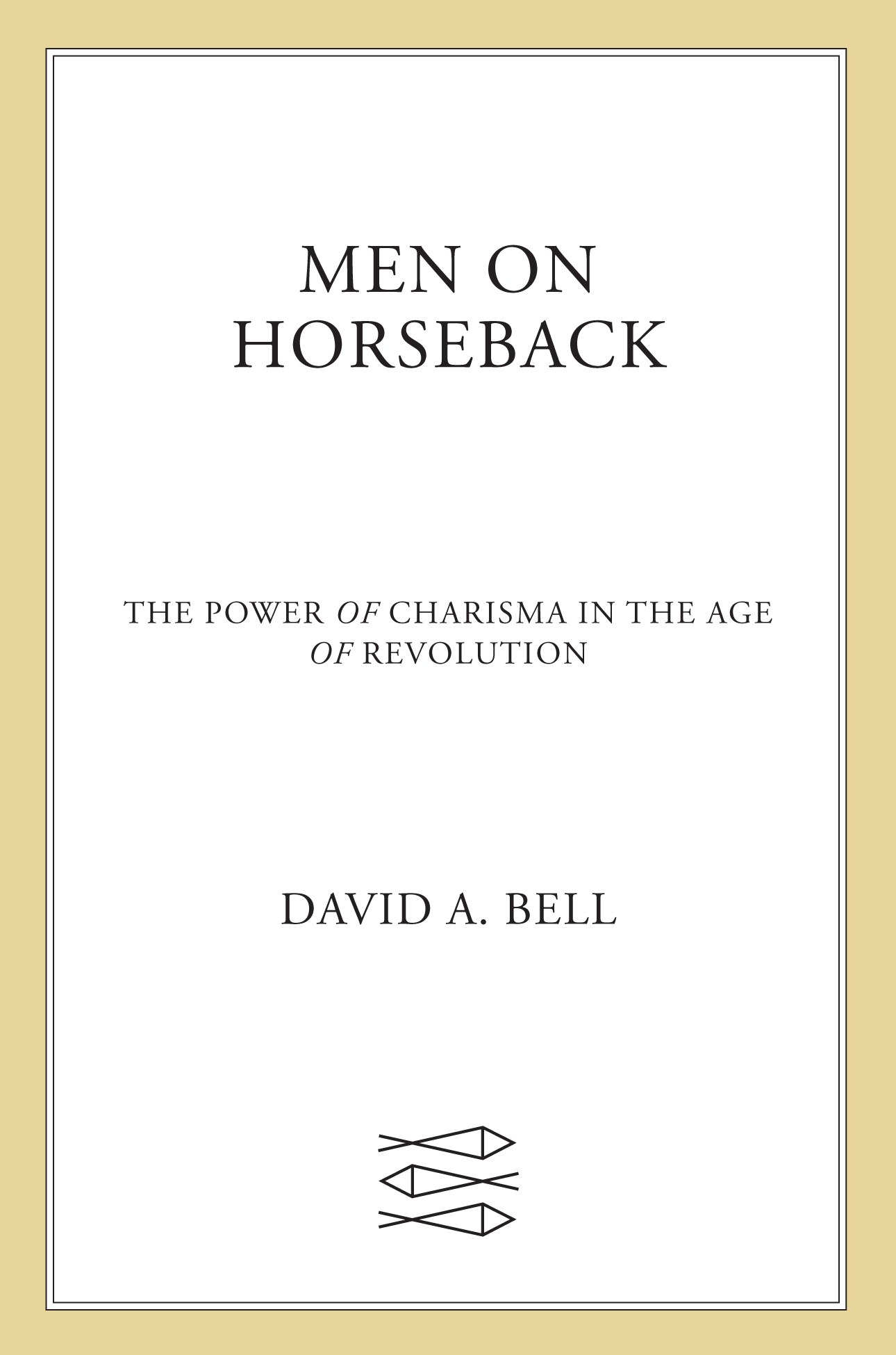

The author and publisher have provided this e-book to you for your personal use only. You may not make this e-book publicly available in any way. Copyright infringement is against the law. If you believe the copy of this e-book you are reading infringes on the authors copyright, please notify the publisher at: us.macmillanusa.com/piracy.
To John Merriman, Richard Kagan, and Gabrielle Spiegel
The great problem in politics, which I compare to that of the squaring of the circle in geometry is to find a form of government that sets the law above man. If this form of government is attainable, then let us seek it out and try to establish it But if, unfortunately, this form of government is not attainable, and I frankly confess I do not think it is, then it is my opinion that we should go to the other extreme and at once put man as high above the law as possible and therefore establish an arbitrary despotism, indeed the most arbitrary despotism possible. I would wish that the despot could be God.
JEAN-JACQUES ROUSSEAU, letter to Victor de Riqueti, marquis de Mirabeau, July 26, 1767
Why, man, he doth bestride the narrow world
Like a Colossus, and we petty men
Walk under his huge legs and peep about
To find ourselves dishonorable graves.
Julius Caesar, act 1, scene 2
When Shakespeares character Cassius used these words to describe Julius Caesar, he evoked one of the most durable myths in human culture: there are giants among ustitans, heroes, bermenschen. They may be mortal, but something about them nonetheless seems miraculous and supernatural. They have extraordinary genius, vision, courage, strength, virtue, sheer magnetism. They seem to burn with a flame that leaves the rest of the human race looking cold and gray. In a wordand it is a word that literally means a gift of divine gracethey have charisma.
But read the rest of Cassiuss speech, which this febrile, anxious conspirator, he of the lean and hungry look, makes to an audience of one: his fellow Roman senator Marcus Junius Brutus. Cassius has not come to praise Caesar, and his description of Caesar as a colossus comes slathered in thick, pungent irony. For Cassius, Caesar is a man like any other, despite his oversize reputation. The idea that Caesar is a superman both alarms and disgusts him. He recalls episodes in which Caesar (already aging in the play) showed himself weak and helpless, like a sick girl, and concludes, in a tone of heavy sarcasm, And this man is now become a god. To call Caesar a god is blasphemy; to call him a king, treason. If Caesar lives, and the Romans raise him to royal or divine dignity, then the Republic, in Cassiuss view, will die. Caesars charisma is something both false and dangerous, and Cassiuss intention is to enlist the wavering Brutus, Caesars protg, into the conspiracy against him.
And yet, as is so often true with Shakespeare, the words have a power that goes beyond the characters intentions. Cassius wants to ridicule Caesar, to bring the false god down to earth, to smash the idol. But his description of Caesar as a colossus bestriding the narrow world is magnificent, and when his barbed condemnations of Caesar have faded from memory, these words remain, a glimmering reminder of the myth that Cassius wants so desperately to expose as a lie.
Both the lure and the dangers of charisma pointed to by Cassius remain with us today. Around the world, in both democratic and autocratic states, there is a perennial longing for leaders with magnetic appeal and extraordinary abilities who can unite viciously divided communities, overcome apparently intractable problems, and by sheer force of personality give whole nations a new start. But charisma also generates anxietiesespecially in democracies. Modern democracies pride themselves on being governments of laws. What will happen if we treat ordinary, limited, and perhaps even corrupt and criminal individuals as superhuman, making them into idols? What if the intensity of attraction leads whole countries to follow such leaders blindly, unquestioningly, even as constitutions are flouted, human rights trampled, minorities oppressed and killed, and nations marched off to war?
Democracies are particularly suspicious of charismatic leaders. Yet, paradoxically, the longing for such leaders acquired new importance, and a distinct new shape, during the very same period that witnessed the first stirrings of modern democracy: the eighteenth and early nineteenth centuries. It was during the moment of extraordinary intellectual fermentation that we now call the Enlightenment, and then in the great revolutions that washed across much of the Western world between 1775 and the 1820s, that the powerful forms of political charisma we are familiar with today took shape. These forms of charisma posed challenges to democracy but were also symbiotically linked to it. Indeed, from this period onward the stories of charisma and democracy have wound tightly around one another in their own political version of the double helix. They have done so thanks to a revolutionary transformation in the relationship between ordinary people and their political leaders that began in the eighteenth century but that has never been fully understood. That transformation is the subject of this book.
What, exactly, is charisma, and what does it mean to write its history? In popular usage, the word serves as a rough synonym for personal magnetism. A famous photograph of John F. Kennedy greeting enthusiastic admirers on the beach in Santa Monica in 1962 perfectly illustrates this notionhe seems to be drawing people to him as if by invisible threads (figure 1). Kennedy remains, even many decades after his death, the paradigmatic example of a charismatic politician, in the United States and well beyond.
But this popular notion is vague and elusive. As the magazine Psychology Today puts it, charisma is often said to be a mysterious ineffable qualityyou either have it or dont have it. The magazine goes on to propose that charisma in fact inheres in qualities such as confidence, exuberance, optimism, a ready smile, expressive body language, and a friendly, passionate voice. This definition may seem more useful, but it quickly breaks down as well. Not only are these qualities impossible to measure in any meaningful way, but a moments reflection suggests that certain combinations of them could easily strike observers as overbearing and obnoxious, rather than as charismatic.
A better approach starts from precisely this last point, and from the recognition that charisma is not just an individual quality but a relationship. The ability to appear charismatic depends not only on the individual in question but on which traits are likely to elicit such beliefs and feelings within a particular community. In other words, it is a question not just of psychology but of culture. Some things may remain forever mysterious about the appeal of particular individuals: a Kennedy, a Garibaldi, even a Hitler. But we can analyze how they interacted with admirers, how admirers discussed and represented them, and which of their specific qualities, traits, and actions appeared most attractive and emotionally resonant.
Historians have mostly discussed charisma in the course of writing biographies of figures like Kennedyor Hitler.
Font size:
Interval:
Bookmark:
Similar books «Men on Horseback: The Power of Charisma in the Age of Revolution»
Look at similar books to Men on Horseback: The Power of Charisma in the Age of Revolution. We have selected literature similar in name and meaning in the hope of providing readers with more options to find new, interesting, not yet read works.
Discussion, reviews of the book Men on Horseback: The Power of Charisma in the Age of Revolution and just readers' own opinions. Leave your comments, write what you think about the work, its meaning or the main characters. Specify what exactly you liked and what you didn't like, and why you think so.

